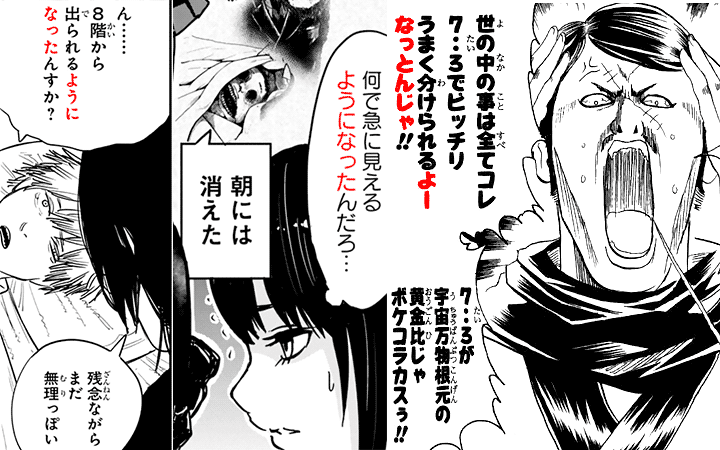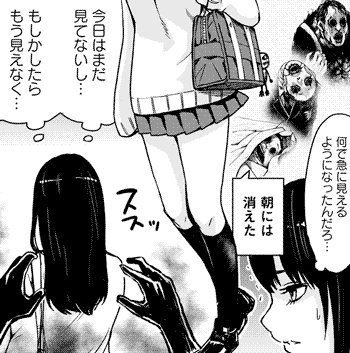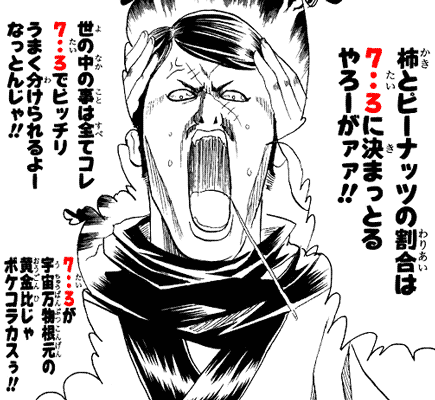What does ~you ni naru ~ようになる mean in Japanese?
Most likely, it means "to become in a way that does/doesn't do something," i.e. "to start doing" or "to stop doing" something; or "to become able/unable to do something;" it can also mean to "to become like/similar to something else." Syntactically, this is you 様 followed by the ni に adverbial copula modifying the verb for "to become," naru なる.
- watashi wa {{mai-nichi hon wo yomu} you ni} natta
私は毎日本を読むようになった
I became {such way [that] {reads books every day}}.
I started reading books every day. - {{hon wo yomanai} you ni} naru
本を読まないようになる
To become {such way [that] {doesn't read books}}.
To stop reading books. - {{kanji ga yomeru} you ni} naru
漢字が読めるようになる
To become {such way [that] {is able to read kanji}}.
To start being able to read kanji.
To become able to read kanji. - kimi no you ni naritai
君のようになりたい
[I] want to become like you.
Manga: Mieruko-chan 見える子ちゃん
Manga: Gintama 銀魂
Grammar
See the articles about you 様 and naru なる for a detailed explanation about the grammar. This article is mainly for examples.
This phrase forms an ergative verb pair with ~you ni suru ~ようにする: "to make X become Y."
In summary: you 様 has two relevant usages: when it means "like" or "similar to," and when it's used merely as an auxiliary to make the grammar work and means nothing at all. In the first case, the phrase simply means "to become like/similar to," and is normally preceded by a noun as a no-adjective, making ~no you ni naru ~のようになる. In the second case, where you means nothing, it will be preceded by a verb (e.g. yomu, yomeru, yomanai). It occurs because naru なる, an eventive verb meaning "to become," takes a stative subject complement as an adverb: for nouns and adjectives, this means they're conjugated to their adverbial forms—the da だ copula becomes ni に, while ~i ~い becomes ~ku ~く, forming ~ni naru ~になる, ~ku naru ~くなる—but stative verbal predicates (stative verbs like yomeru, habituals like yomu/yomanai from the examples) don't have an adverbial form, so you 様 is added after them because you 様 is conjugated like a na-adjective and as such it has an adverbial form (you ni 様に) that those verbs wouldn't have. Observe:
- yomu
読む
Reads (habitually). - yomu you ni naru
読むようになる
To become in a way that "reads (habitually)."
To start reading (habitually).- c.f.: yomi-hajimeru
読み始める
To start reading [books, habitually].
To start reading [one book, right now]. - The phrase ~you ni naru isn't used to say you literally opened a book and started reading from it at the spot, because in this case we'd be referring to a single event. It can, however, be used to say you started reading a same one book, e.g. "I read the bible every night" is a frequentative habitual state, so "I started reading the bible every night" could be said with ~you ni naru.
- c.f.: yomi-hajimeru
Examples
- Context: Yotsuya Miko 四谷みこ became able to see ghosts.
- nande {kyuu ni} {{mieru} you ni} natta-n-daro...
何で急に見えるようになっただろ・・・
Why did [I] {suddenly} became {{able to see [ghosts]}}...
Why did I suddenly start seeing ghosts...- mieru - "able to see," "visible," stative verb.
- Arrow pointing to a ghost she saw in her bed at night:
- asa niwa kieta
朝には消えた
[It] disappeared in the morning. - kyou wa mada mitenai shi...
今日はまだ見てないし・・・
[I] haven't seen [them] yet today, so... - moshikashitara mou mienaku...
もしかしたらもう見えなく・・・
[it] could be [I] already [became] {unable to see [them]}.
- mou mienaku natta
もう見えなくなった
Already became {not able to see}
Already stopped being able to see.
Can't see [ghosts] anymore.
- mou mienaku natta
- susu'...
ススッ
*sound effect used when someone approaches someone else from behind*
- Context: the characters are trapped.
- {hachi-kai kara derenaku} natte-iru...
8階から出れなくなっている・・・
[It] has become so that {[we] can't leave the eighth floor}.
[We] are no longer able to leave the eighth floor.- hachi-kai kara derenai - "[we] can't leave the eighth floor."
- derenaku - adverbial form of derenai 出れない, "can't leave," negative form of dereru 出れる, "to be able to leave," potential form (missing ra ら) of deru 出る, "to leave."
- ~kai - counter for floors.
- n... {{hachi-kai kara derareru} you ni} natta-n-desu ka?
ん・・・8階から出られるようになったんですか?
Hmm... did [it] become {so [that] {[we] can leave the eighth floor}}?
Hmm... can we leave the eighth floor now?- hachi-kai kara derareru - "[we] can leave the eighth floor."
- derareru - potential form (including ra ら) of deru 出る.
- zan'nen nagara mada muri-ppoi
残念ながらまだ無理っぽい
Unfortunately [it] seems to be still impossible.
- Context: Kurogoma Katsuo 黒駒勝男 explains the perfect ratio of rice crackers to peanuts.
- Note: kakipii 柿ピー is common mixture of two snacks, kaki no tane 柿の種, which is rice cracker shaped as a "persimmon seed," and peanuts.
- kaki to piinattsu no wariai wa hichi tai san ni kimattoru yaroo gaaa!!
柿とピーナッツの割合は7:3に決まっとるやろーがァァ!!
The ratio of rice crackers to peanuts is [obviously] 7:3!!- See: shichi-san-wake 七三分け.
- kimattoru yarou - same as kimatte-iru darou 決まっているだろう.
- yo no naka no koto wa subete kore, hichi tai san de picchiri umaku wakerareru yoo nattonja!!
世の中の事は全てコレ 7:3でピッチリうまく分けられるよーなっとんじゃ!!
Everything in the world is this (like his hair), [created so that] [it] can be perfectly divided into seven to three!- wakerareru yoo ni nattonja - same as wakerareru you ni natte-iru-n-da 分けられるようになっているんだ.
- An eventivization of the stative verb wakerareru, "to be able to divide," which is the potential form of wakeru 分ける, "to divide."
- hichi tai san ga uchuu banbutsu kongen no ougonhi ja, boke kora kasuu!!
7:3が宇宙万物根元の黄金比じゃボケコラカスぅ!!
Seven to three is the golden ratio of the origin of all creation in the universe, *expletives*!!




No comments: